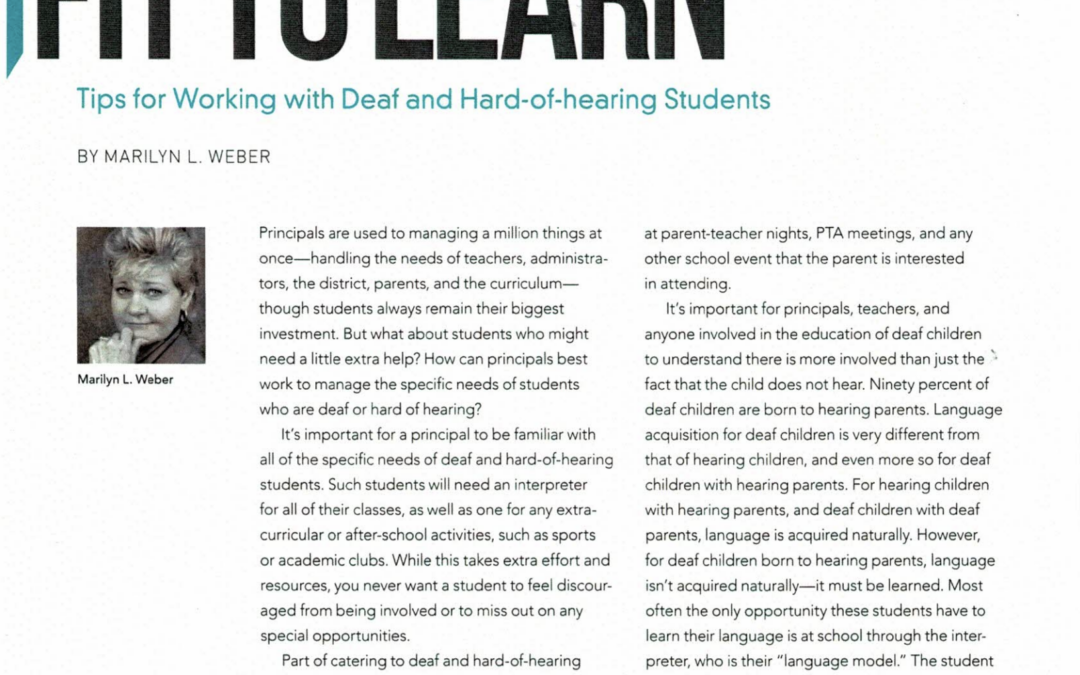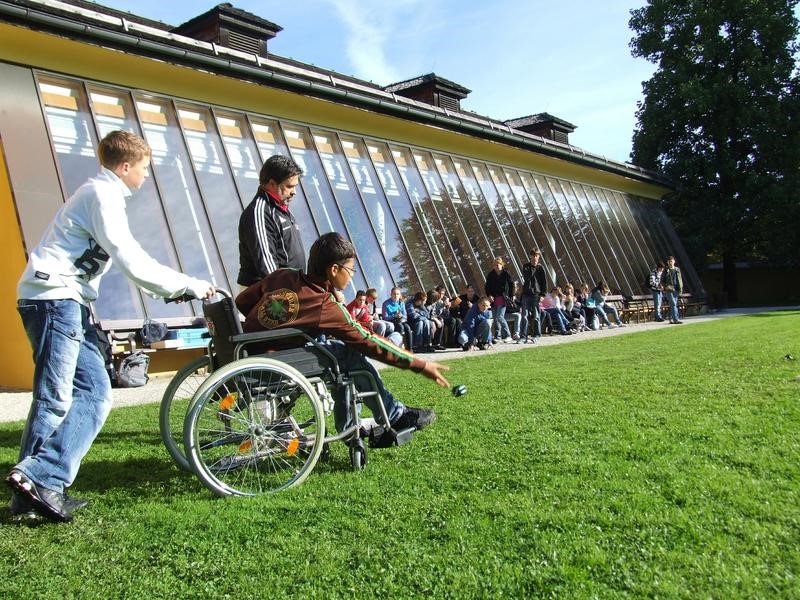With so many misconceptions regarding Certified Sign Language Interpreters lately, I thought it appropriate to help shed some light and information regarding Interpreters and 10 Important things to Know. As an interpreter, I have been asked some of the oddest questions through the years. One of the earlier questions that was asked was: “So… do you just follow the Deaf person around all day?” Uhmm…NO. Another that I found peculiar was: “Does he REALLY know what you are saying… I mean, with your hands just moving around like that?” Well… judging from his responses to your in-depth questions, matching his work history for the past several years… I would say YES! Another one we get quite often is: “Is there a cost for this?” We explain that interpreters are Professionals (like Doctors, Plumbers, Electricians, etc.) who are State and/or Nationally Certified with years of professional training, and this is the way they earn a living to support their families. Sometimes they understand, and sometimes they respond with “oh, I need a free one… I don’t want to pay for it. It may cost more than insurance will reimburse” (This is for a medical appointment). Communication access is critical, especially in medical situations. We try to help the medical provider understand the seriousness and ramifications of miscommunication. Usually, once it reaches the actual Doctor, and they have had time to confer with their peers and/or Legal Council regarding the Americans with Disabilities Act (ADA), the office will schedule the interpreter.
One thing that most hearing people don’t realize when they are considering whether they want to hire an interpreter “for their Deaf patient/client” is…. The hearing person needs the interpreter just as much as the Deaf individual does. COMMUNICATION GOES BOTH WAYS. Without the interpreter, the hearing person will not completely understand what the Deaf person is saying, and vice versa. I can’t tell you how many times we have been contacted after that first appointment, and the Doctor’s Office/Business Entity just raved about how well and smooth the process was! That is typically the beginning of a great relationship between the entity and its Deaf consumer/employee.
Most people want to do the right thing, but they aren’t familiar enough with the process or how to go about securing a Certified Sign Language Interpreter. Perhaps THAT explains why we’ve seen an influx of FAKE INTERPRETERS in the news lately….or have Sign Language Interpreters finally reached a point of notoriety?
In all seriousness, most of these questions we get are innocent in nature. For those who have never experienced Professional Interpreters or dealing with individuals who are Deaf or Hard-of-Hearing, there is no doubt a learning curve. I find when we take a few extra minutes to help hearing individuals understand the need for interpreters, and properly inform them by sharing the knowledge and processes, most people will do what is needed to ensure the individual who is Deaf/Hard-of-Hearing has communication access to the services they are providing.
Here are 10 MUST-KNOW things regarding Sign Language Interpreters and ASL:
-
- Professional Sign Language Interpreters are State and/or Nationally Certified. Interpreters must pass a series of State Exams, and hold a College Degree (minimum requirement: Associate’s Degree). Prior to taking the Performance Exams, interpreters must past a written ‘Test of English Proficiency’. If that is passed with the required score, they can apply to take the Performance Exams – which consists of: Expressive, Receptive and Interactive tests. In some states, there is an additional License required.
- Interpreters are Professionals with many years of training and experience, with standards they must follow. Most interpreters graduate from an ITP – Interpreter Training Program- through a college, ranging from 2-4 years of intense training, depending on the college. Upon graduation, they can then apply to take the State Exams.
- Interpreters are bound by a Strict Code of Ethics. This is taken very seriously and monitored constantly. The Code of Ethics includes, most importantly, Confidentiality. As Interpreters, we are in the lives of individuals who are Deaf or Hard-of-Hearing on a regular basis. Situations that are very personal and confidential suddenly have an ‘outsider’ very privy to their personal and sensitive information. The ONLY reason we are there is to ensure communication happens. Sometimes the situations are very emotional, heart breaking and difficult to process. This weighs heavily on interpreters also, as they cannot debrief or discuss what they witnessed, with anyone.
- Sign Language is the ONLY language that is interpreted simultaneously. All others are done consecutively.
- Sign Language Interpreters MUST be Neutral, and can-not interject their thoughts, opinions or biases in any manner. That is why it is best NOT to have a family member interpret for the Deaf individual. Neutrality is very challenging when it’s a loved one and the message they are needing to relay is not a positive one. Most family members do not have the signing ability/skill to accurately interpret most situations. That is a fact.
- American Sign Language (ASL) is a true language. There are multiple “modes… or coded sign language” that is often grouped into the term ‘ASL’. There are also Regional Dialects in ASL, just as in any other language. Interpreters need to be fluent in them all to be able to effectively interpret the message (Expressively and Receptively) into the Deaf consumers preferred Language/mode.
- There are different Certification Levels, as well as Specialty Certifications such as Legal and Medical Interpreting, which require additional years of training. Not all individuals who are Deaf utilize ASL. Some are raised using Oral Interpretation (with or without sign support). That is another Certification focusing on verbal language and how it is formed on the lips.
- There are Certified Tri-Lingual Interpreters also. These are interpreters that are skilled to interpret in situations requiring all 3 Languages: Spoken English/ ASL/ Spoken Spanish. Like other Specialty areas of interpretation, Tri-Lingual interpreters must pass rigorous training and a series of Exams. Sometimes there is the need for an MSL (Mexican Sign Language) Interpreter in an appointment as well. In these situations, Certified Deaf Interpreters (CDI’s) are used in tandem with the ASL Interpreter. The Deaf individual who uses MSL will sign to the CDI. The CDI will sign to the ASL interpreter and the ASL interpreter will voice to the hearing individual… and vice versa.
- Interpreters can be utilized either ‘On-site’ at the location, or virtually through Video Remote Interpreting (VRI). VRI is a process that utilizes the internet, a laptop with audio and video camera, and a HIPAA/FERPA compliant platform to bring the Interpreter, the Deaf individual and the hearing individual together when they cannot physically be in the same place at once. Video Remote Interpreting is especially beneficial in areas where there are not a lot of interpreters, or when time is of the essence… such as emergencies and/or short notice situations. One does not have to wait for an interpreter in the immediate area to become available. Interpreters across the country can be immediately utilized.
- ASL Interpreters sometimes work as a Team of 2 (i.e. assignments over 1.5 hours of constant interpreting, such as lengthy lectures or large meetings, conferences, etc.). This is due to the intensity and the length of the assignment. They work in tandem, switching places every 20-30 minutes. While one is physically interpreting, the other one is actively listening and ‘feeding’ the signing interpreter when necessary, words that are difficult to hear, assisting with visuals on a big screen behind the presenter and interpreter, etc. The second interpreter may do the voicing or presenting the audience questions. Carpal Tunnel syndrome is very prevalent with Sign Language Interpreters. Remember…. ASL interpretation is done simultaneously. This is a very mentally and physically fatiguing process.




